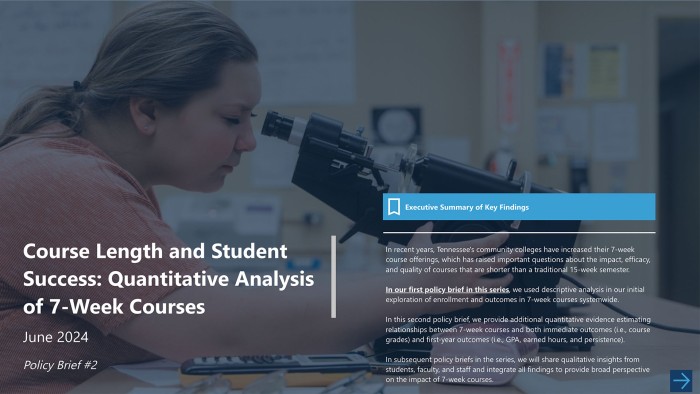
New Study Presents Compelling Evidence on the Benefits of Multiple Measures Assessments
 Incoming college students in the U.S. are typically placed in introductory, or “gatekeeper,” English and math courses largely based on the results of standardized placement tests. Students above a cutoff score chosen by the institution are placed in college-level courses and those below it are “kept out,” or placed in no-credit developmental (remedial) courses.
Incoming college students in the U.S. are typically placed in introductory, or “gatekeeper,” English and math courses largely based on the results of standardized placement tests. Students above a cutoff score chosen by the institution are placed in college-level courses and those below it are “kept out,” or placed in no-credit developmental (remedial) courses.
This common practice prevents many learners, including those from low-income backgrounds, from otherwise succeeding in college-level coursework just because they didn’t perform well on standardized tests. Developmental courses are associated with slower progress to degree and lower degree completion rates. Learners from low-income backgrounds, particularly students of color, are disproportionally represented in developmental courses. An Ascendium-supported study by MDRC and Community College Research Center (CCRC) lays out compelling evidence for institutions to replace standardized placement testing with a multiple measures assessment methodology.
Increasing Gatekeeper Course Completion presents results of a large, randomized controlled trial looking at more than 17,000 community college students in Minnesota and Wisconsin. Researchers randomly assigned students either to a group that used multiple measures for placement or traditional placement by a standardized placement test. The multiple measures assessments used a student’s high school grade point average (GPA), ACT or SAT scores and one of two non-cognitive assessments, which measured student behaviors, attitudes, beliefs and motivations.
The study found that students who were “bumped up” into college-level English courses by multiple measures were 16 percentage points more likely to have completed the course by the end of their third college semester compared to those who started in a developmental course. For math, students were 11 percentage points more likely to complete. Ascendium also supported Phase I of this study, in which the Minnesota and Wisconsin participants developed multiple measures alternatives to the standardized placement tests.
"Multiple measures assessments have been adopted by many institutions but they're by no means universal," said Sue Cui, Ascendium's senior program officer for Removing Structural Barriers to Success. "The results of this study should encourage those considering implementing multiple measures to move ahead with confidence."


